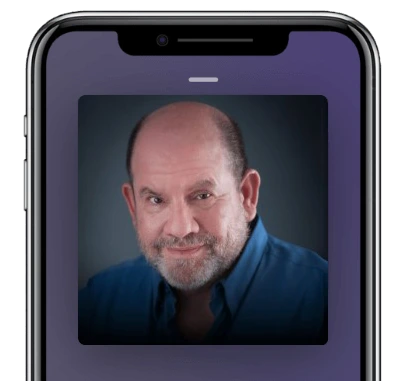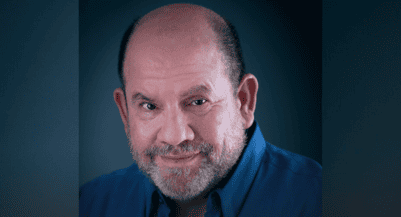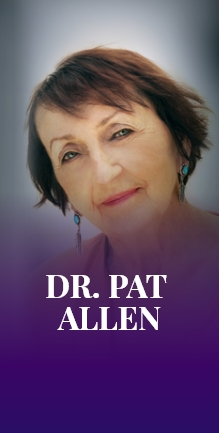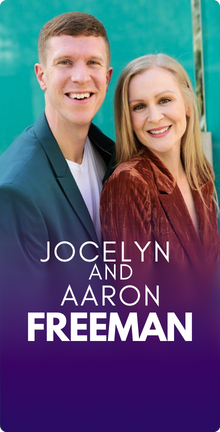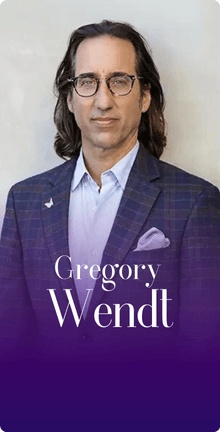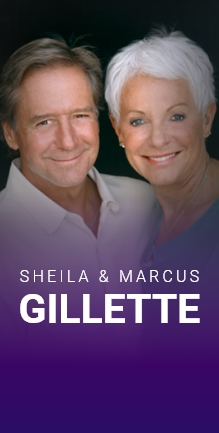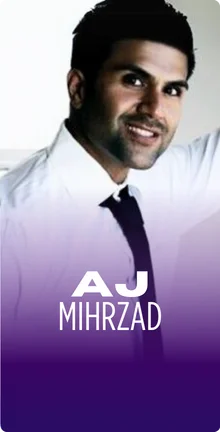In this Episode
- [02:32]Dr. Stan Tatkin discusses his journey into the field of attachment and psychology, highlighting attachment theory and its impact on relationships.
- [14:51]Stephan and Dr. Stan talk about how divorce triggers primal fear reflecting on their past relationships, and Dr. Stan describes healing and growth after a divorce.h
- [17:15]Stephan and Dr. Stan share their perspectives on the concept of soulmates.
- [27:45]Stephan recalls his spiritual journey from non-believer to embracing spirituality.
- [32:34]Stephan expounds on the concept of a higher dimensional reality of truth and connecting with God through imagination
- [42:01]Stephan and Dr. Stan explain the principle of unity from Dr. Robert Cialdini’s book, Influence, and they grapple with the idea that our thoughts and emotions are constantly influencing each other.
- [52:46]Here’s how you can connect with Dr. Stan Tatkin.
Stan, it’s so great to have you on the show.
Thank you for having me, Stephan.
We have quite a lot of accolades and accomplishments. It’s quite impressive. I’m curious to hear how you got into this area of study and expertise.
I wonder sometimes, too. I was telling you that I was a musician in the music business audio, and I found my way to psychology late in life, about 27 or 28, and that’s when I went back to school and never looked back. I’ve done many things in the field. I worked for John Bradshaw, who was big at one point and was part of his inpatient hospitalization group. I worked with people in hospitals, was a drug and alcohol director at Charter Hospital, and then started to study neurobiology and attachment. From there, personality disorders, and then back to attachment, and finally settled into couples. That’s where I am now.
A sense of safety and security shapes the way the child behaves in terms of intimacy.
What is it about attachment that our listener really needs to know? I know there are different attachment models. There’s an attachment that’s dysfunctional, and there are attachment models that are like the avoidant teen inner child connecting up with the anxious child who’s fearful of abandonment. This is all very fascinating to me. I’ve studied a bit about it. What would you recommend our listener focus on regarding attachment and why?
Attachment is the study of the felt sense by an infant. And it’s tested anywhere from ten months to 18 months of age. They felt a sense of an infant’s safety and security with their most dependent upon the figure. Usually, the mother could be any caregiver. That sense of safety and security shapes how the child behaves in terms of intimacy and moving toward a way that caregiver figures or other caregivers do. If the relationship is secure, that baby does very well both in being able to cling or go back to the mother for a safe harbor whenever needed for refueling. Or distance and explore the non-caregiver world without consequence. That would be considered secure from the baby’s point of view.
From the baby’s point of view, insecure attachment would be something other than that. It would be either fear of abandonment or fear of intrusion engulfment. And so fast forward to adult life—someone who is insecurely attached on the distancing end of the insecure spectrum still worries about having their autonomy taken from them—their independence. They often feel that they’re going to be smothered or engulfed. They’re going to lose their freedom. They’re not going to be able to be themselves. So they’re distancing the other side of the spectrum. Some people call them anxious, just anxious attached, but both are anxious, by the way.
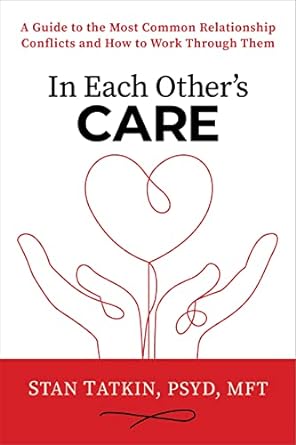
Distancing people are anxious about being smothered and having their freedom taken. The other side is anxious about withdrawal, separations, reunions, rejection, punishment, and abandonment. They’re preoccupied with that. Thus, both sides can be challenging for people because their defenses often come off as threatening to the other person. “I don’t understand why you feel so good when you’re away from me. Why do you like your alone time? Why don’t you like me to call out your name and ask you a question? Why do you keep testing me? Why do you keep wanting to know whether we’re okay and whether I love you? And you ask me at ten at night, just when we’re going to go to bed, and often you’re angry when I return for you.” So, both of them have their challenges. But if we understand that these are just a set of fears based on adaptation, it’s not a personality. These attachment organizations can and do change throughout life.
How do you fix that? How do you change and adapt in a more functional way in a relationship?
There’s the rub, isn’t it? Because these are formed interpersonally, and if I am one or the other, my behavior is alarming to you. It causes you to behave in a way just as I expect, which consolidates my fears around my attachment. So, the chances of my staying the same way through life are high unless I go to therapy or unless I begin to grow up and have better and better relationships with lovers. Then, I can start to move out of this or read my books.
Starting with which one?
All of them, actually. I talk about secure functioning, which isn’t secure attachment. It is a set of social contracts based on fairness, justice, and mutual sensitivity. If you follow those guidelines of teamwork, you, too, will eventually become secure.
We have a biological mandate called attachment, which is nature's glue. It keeps us interdependent; otherwise, we wouldn't be. Share on XHave you had a personal experience of being in an insecure or dysfunctional relationship that you learned from experience that this is how you get out of it or this is how you heal it?
Most definitely. I was very happy. We call them ‘islands’ on the distancing side, ‘waves’ on the clinging side, and ‘anchors’ instead of secures to make it friendlier. We’re using the nautical theme. But I was pretty much an ‘island’ most of my life. In the literature, you would call me an avoidant until I married my current wife, Tracy, who I have known since junior high. She pulled me into security. So, I’m now a little bit on the clinging side. I have to say, developmentally, that makes sense.
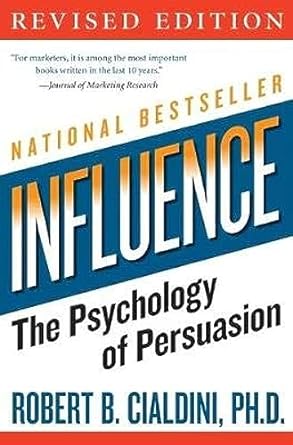
Is that a good thing, or is that something that you’re working on or adjusting so that you’re more kind of even-keeled or something?
Both of us are in the secure pocket, and there’s a certain kind of itchiness when you arrive at this theoretical, imagined space of secure attachment. You can swing both ways, depending on the weather and the dynamics of the relationship. The difference is that one isn’t a card-carrying this or that. We’re not stuck rigidly in one orientation or the other. So I’m no longer stuck. I’m proud of my clinginess because now I know what I was missing all that time.
You’re making up for lost time?
Yes. Human primates, by nature, tend to be more clinging than distance. Distancing is much more of an aberration in our species.
How many years have you been married to Tracy?
I like to say 50 because of our childhood, but it’s been about 23 great years.
So the idea here is that if you guys met in childhood, that wasn’t by accident, that was by fate, or that was by divine design. I’m curious to hear what your take is on that. Was this something that you see as the hand of God putting the two of you together, or does it seem like it was just a fortunate accident?
Humans tend to be a little bit more clinging than distance. Distancing is much more of an aberration in our species.
In the beginning, we were in junior high math or science together, and then I knew her throughout high school, and we lived near each other. We didn’t travel in the same pack. We were in two different cliques. I was in the musician clique. She was in the surfer-girl-track runner clique. I had a mad crush on her, and she didn’t know. We didn’t hook up until our forties.
After my divorce, and being the walking dead I was during that time, I reached out to her through our Palisades High School alumni, and then we carried on an email back and forth for quite some time before we met in our neighborhood park for hiking. You could say that because we both talked about how we had met earlier, we probably wouldn’t have been interested in each other. So, in terms of serendipity and timing, absolutely. In terms of this happening to me, unquestionably, I feel blessed and lucky because I don’t know how other people have felt about their divorces. For me, they took me out. I was terribly depressed. I never thought I would divorce, and it was soul-crunching for me, and so many times, I think that Tracy saved my life.
I can relate, by the way, to this experience that you’re describing, where it was soul-crushing to go through a divorce. I felt like a failure. When I went through my divorce, I felt like I had ruined my kids because I was a child of divorce. I knew how traumatic it was to be that I actually had a big book on the topic of children of divorce. I remember having that on the bookshelf. And I’m like, “This is not going to be my kids, not on my watch.” My wife at the time, after 18 years, decided, “This is it. We’re done.” I was devastated. I was in kind of a low-grade depression. I think it’s called dysthymia. For a couple of years, I didn’t have a single date for two and a half years after the separation.
Same here. I was more pathetic than that. People who knew me remembered I moved into an apartment, and all my balloon-type furniture, including my bed, was all blown up. It was all temporary. I didn’t want anything permanent. I was a mess. My work as a therapist and teaching at university saved me during that time. Those two things saved me because I could think about others, not myself. That kept me going.
The idea of a primary attachment relationship coming to an end or threatening to come to an end mostly puts us into a tailspin.
I take it very seriously. I take this idea of attachment and breaking up, in particular, marriage because marriage means something more to many people than others. We have a biological mandate called attachment, which is nature’s glue. It’s what keeps us interdependent. Otherwise, we wouldn’t be. We’d be lone wolves. So, for better or worse, this attachment system pulls us together and keeps us together, even if we shouldn’t be. When it’s over, it feels a bit like death because it is a primitive experience going all the way back to infancy, where our lives depend on being loved or that idea of being loved. It’s really the attachment system. It’s not love. I confuse it often; it is an existential threat. The idea of a primary attachment relationship coming to an end or threatening to come to an end really puts us into a tailspin—not all people, but most.
And back in hunter-gatherer days, being thrown out of the clan meant physical death.
The same is true with other mammals when you see them thrown out many times for their food because they’re no longer protected. So, if that’s what you mean, it happens throughout the mammalian.
Yeah. What do you see as the biggest gift of that whole experience of the divorce and just the depression that followed and all the kind of existential angst that you went through?

Growing up, I had to look at how I was living my life and what I did to ruin my marriage. I’m a big fan of my analysis, at least. It was a lifesaver again for me—my work and seeking to figure out what had happened. My ex-wife and I were most definitely in love, and it was a hotel divorce, meaning it happened very quickly without a lot of understanding and a lot of processing. We had not cooled off, which made it feel more like bleeding out for both of us. I don’t think she suffered any less than I did. That drove me to adult pair bonding because, before that, I studied infant brain development and infant attachment, as well as autonomic nervous system regulation. Because of this curiosity and having a hard time getting mother-infant pairs into practice for prevention, I switched to adult pair bonding. I found the similarities to be striking. That’s where I did all my research and stayed.
When I met Tracy, who was different from anybody else I had been attracted to, I found that both of us could thrive in our union. I could be as creative as I needed to be, but I went through a long period of an overwhelming creative patch where I couldn’t stop, and she did, too. If not for that relationship, I wouldn’t do what I’m doing. I probably would be doing what I’m doing, but I wouldn’t have soared in the sense of creativity, invention and passion because I absolutely found my passion by focusing on couples only.
A decision to not let my mind push me around and live a life of purpose, dedication and principle is more internal.
Do you believe in the concept of soul mates? And if so, how would you define a soulmate?
I did. I have a different view of coupling than I once had as a scientist. We pair bond by recognition and familiarity. I stand in awe of nature and biology, how we meet, and how we even spend more than an hour together and then decide to spend a day, a month, or years together. And all that goes into that, most of it is non-conscious. It’s absolutely fascinating. A soulmate, to me, was someone who was actually me. When I was younger, the soulmate I imagined was another aspect of myself, not a completely different person who would be frustrating, annoying, irritating, disappointing and contradictory. This is the perfect alternative for me. That’s why I thought of my soulmate. That’s exactly what drew me many times to the wrong relationships. It’s not that the people weren’t wonderful, but the relationships were wrong. It wasn’t until Tracy, who took me a while to fall in love with her. She was so different and so alien to me that it was almost too strange.
I write about a balance between familiarity and strangerness. There’s a balance there that’s necessary. Too familiar, too much like you’re with your family, too strange. You’re too far away from home. And there’s a balance. I don’t know if I was ready for that. That’s why I was able to stick with it. She stuck with me, too, because of being this depressed, tearful, eating gummy bears in the middle of the night, locking himself out of his house because he took Ambien. I was not very attractive, but she hung in there with me. That whole experience was a rebirth for me. I still look at her to this day, and I understand why, as someone who is still not me, not even close to the woman that I would fall in love with in the past, and yet I’m still in love with her today and more so every day because of a different attitude. What we do for each other is different than a feeling that comes and goes and cannot be controlled by the will, as opposed to something earned every day. That’s exactly what our relationship is like. So, soul mate? No. The person I’ve chosen to be my intention, my absolute focus, the person I’m constantly learning, like my career, that I’ve decided to ride or die. It’s more internal than anything else—a decision to not let my mind push me around and live a life of purpose, dedication and principle, which is a blessing.
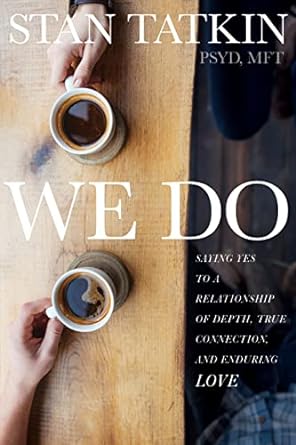
There’s a definition of soulmate that I really resonate with. I’m curious to hear your take on it. It’s from Edgar Cayce, a very famous clairvoyant a hundred years ago, and he said that, and I don’t know if this was channeled. Probably, it was channeled because he got a lot of information from his higher self that he channeled. A soulmate is an ongoing connection with another individual that the soul picks up again at various times and places over a lifetime. We are attracted to another person at a soul level, not because that person is our unique complement, but because by being with that individual, we are somehow provided with an impetus to become whole ourselves.
I love it. That does not disagree with what I said.
So, by that definition, you and Tracy are soul mates?
Absolutely. Tracy is a religious Christian. I was born a Jew and raised by a Catholic, but I never found the God gene. I did find spirituality quite a bit just because of my nature. I have an introverted nature, but I am also experimenting with some mind-expanding drugs in my time. I’ve had some very deep, profound experiences. I’m very plugged in there. I just couldn’t get on board with organized religion. They just never spoke to me. And that’s actually because of my upbringing.
I have an experience of getting disenchanted, let’s say, with religion. As a child, I went to catholic school for most of my childhood, all but two years, and my grandparents raised me for much of my childhood, but one was a Jehovah’s Witness, and the other was a converted Catholic, so they were at odds on everything. I just thought, “Wow, this is all bunk. This just doesn’t make any sense.” They contradicted each other so much. There was no cohesiveness, shared understanding, or shared position on anything. So I didn’t buy into even God, let alone religion, for most of my adult life, up until age 42, when I went to India and had a spiritual awakening. A monk who touched me on the head gave me a blessing called a Diksha. Then I did have a psychedelic experience of everything being one and everything being all lit up in a kind of technicolor, psychedelic way, like a cartoon.
Principles are independent of doctrine; they arise from thoughtful consideration of what is truly the best and right to do in any situation, requiring discipline to discern what is good.
I had never had any experience with drugs, ever. I was going to say up to that point, but I still haven’t. I’ve never done anything, even marijuana or smoking cigarettes. No, any of it. That changed me. That opened me to the experience of God because the monks explained that the divine is an experience, not a belief. You get all these beliefs shoved down your throat in school if you go to a religious school, and they don’t necessarily ring true or resonate with your heart and your spirit, but you’re just told to believe them anyway. That never sat right with me.
Being given stories, allegories, and stories to give us a sense of God was probably a mistake. Instead of encouraging, which, I think American Indians, maybe not all, but tended to make journeys, your own experience, your own spiritual experience, your opening a oneness, a belonging right, instead of a doctrine, which then turns into a political issue in how people get along and don’t get along. I am more of a fan of people—the Harvard professor who designed the moral reasoning intelligence scale based on Jean Piaget’s cognitive scale, Lawrence Kohlberg. It makes sense to me that in terms of moral development and being able to reason around it, religion is relatively low on the scale because it has a dominant end of serving God, whereas you move up into higher areas of reasoning. It’s no longer a dominant end. It’s a relative end, meaning using one’s mind to determine what is good, right, and best, not just for me, but for most people, if not all people.
That’s a different kind of reckoning and a different kind of social control. I also think that religion was a necessary tool to control the masses because people were, I think, Sodom and Gomorrah. People were doing terrible things to each other and themselves. How do you civilize the masses? Religion is a good way. An Old Testament God will kill you if you are always watching. If you do the wrong thing, that’s a good way to get people to behave properly. Later on, we have laws and rules. But I like principles because principles are independent of doctrine. It’s something that we come to if we are thinking about it.
Fears born of adaptation do not define our personality; they are merely a set of beliefs that can evolve as our attachment patterns change throughout life. Share on X“What is the best thing to do in this or that situation? What’s the right thing to do? What’s good that we want to preserve, as opposed to bad?” All of these require discipline. All of these require imagining the best thing to do, even though it will be the hardest. Because it’s human primates, that’s not usually how we roll. We usually do the easiest and most expedient, which is to feel better at the cost of doing the right thing. That’s where I tend to go because I can do that and want to be a better person. I’m sure there are religious people. This has nothing to do with disparaging religion. I just don’t understand it very well. I’m sure that makes them better people, too.
However, I see many people who don’t make better people. And case in point, today or actually any day in the human lifespan, like all doctrines, people at different developmental levels use it according to their ability to understand the meaning of it and at its lowest level. All of these doctrines are only serving the self.
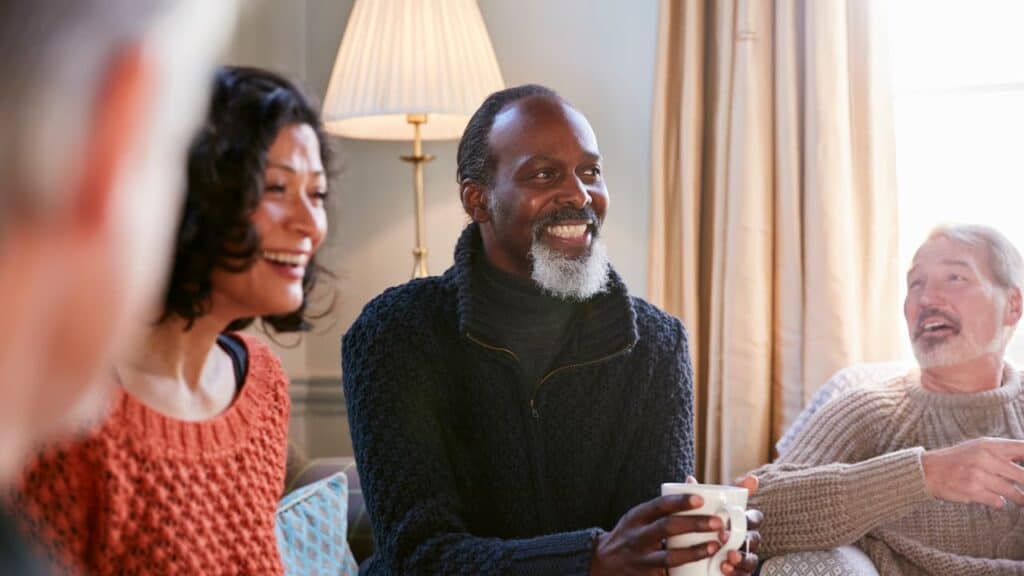
There’s a methodology or system called spiral dynamics, with colors associated with each level. Blue is the level of being very didactic, “These are the rules, and you have to follow them.” It’s all about the structure, the dogma, and religion. If you veer off from the dogma, then you’re going to hell, purgatory, or whatever the penalty is. If somebody is on one of the more elevated levels of spiral dynamics of green or yellow—yellow is integrative—they can see different perspectives and are not so rigid in their belief systems and willingness to consider other people’s beliefs and positions. I think that’s really important because of religion.
Many people just throw that whole thing out, and that’s the baby with the bathwater that goes out the window. It’s a real miss. I can speak from experience because I did not believe in it. I didn’t read any of the Bible or anything like that. It’s been over ten years since that awakening, and it’s just full of gold, beautiful nuggets of wisdom that have been life-changing for me. People identify as either spiritual or religious. If they’re religious, they don’t identify as religious. They identify as a particular religion, like Christianity or Buddhism or what have you, which creates a division. Why can’t you be both spiritual and religious? This is to bring in a political example. Why can’t you be both Democrat and Republican? I see both sides, the benefits and the value of both, but that so diametrically opposed these two sides to each other. In terms of the political spectrum, you’re one or the other; if you’re the other, then you’re out. Just like, “Can’t you just be both?”
We are aggressive, warlike, moody, fickle, opportunistic, impulsive, exploitive, and easily influenced by groups by nature. But, we can change our affiliation if pressured or influenced by a group.
I’m glad you brought that up because this speaks to my work—the human primate. If we really pay attention to our history on the planet, we are, by nature, primates: aggressive and warlike, moody, inconsistent, opportunistic, impulsive, exploitive, and easily influenced by groups. We can change our affiliation on a dime if pressured or influenced by a group. And most of all, xenophobia, we are given to other eyes. When partners cannot learn to accept each other’s differences, they cannot reach the aisle and put themselves in the other’s shoes. When they feel like they cannot handle this person properly, they otherize them. They ascribe I’m married to a narcissist, or a borderline or a codependent. Now they’re on the spectrum. There’s something wrong with them, right? Something to help me understand them because I don’t know how to work them. I don’t like things I can’t operate. That’s the human condition. And so you have religion, or you have politics. It’s not that the sides don’t say the truth of some kind. Both are saying what’s true.
It is people who tend to otherize. This is where we get into tribalization and people looking at and hating the other as being in the way or an enemy of that other person’s goals and beliefs. That is a big problem. It’s a big problem in small systems between partners and larger systems in family communities, countries, religions, political bodies, etc. What do you think about that? A tendency to other eyes and then to do what primates, human primates, have done since the very beginning. If you’re not like me, I’d be better off without you.
It’s a very powerful and important point. If we can see beyond the ego and the identity, the roles and the belief systems, that the truth you mentioned is true and this is true, each person has their truth, but there’s the capital T truth. A great example of this that I love to share, which I’ve shared a few times on this podcast, is just from a social media post. It’s an illustration of a cylinder casting a shadow on a plane on the X-axis and a plane on the Y-axis. One shadow is a circle, and it’s labeled a circle. Under the label is the word true, and on the other perpendicular plane is a casting of a shadow that’s a rectangle, and that’s labeled as such with the word true underneath that. However, the cylinder is only viewable in three-dimensional space. This is illustrated best on a 2D surface as a three-dimensional objective. It’s a cylinder and labeled as a cylinder with the word truth. We see our thing as true, and the other person sees their thing as true, their perspective, their fact. But there’s a higher dimensional reality that is the capital t truth. And if we can zoom out enough to see that there is this higher dimension of reality, of truth that we potentially only see glimpses of, perhaps during a plant medicine journey, then we just have to take it on faith that we are all connected, we are all one and treat each other as such, even when our ego is screaming at us to do the opposite, to kick them out of the clan.
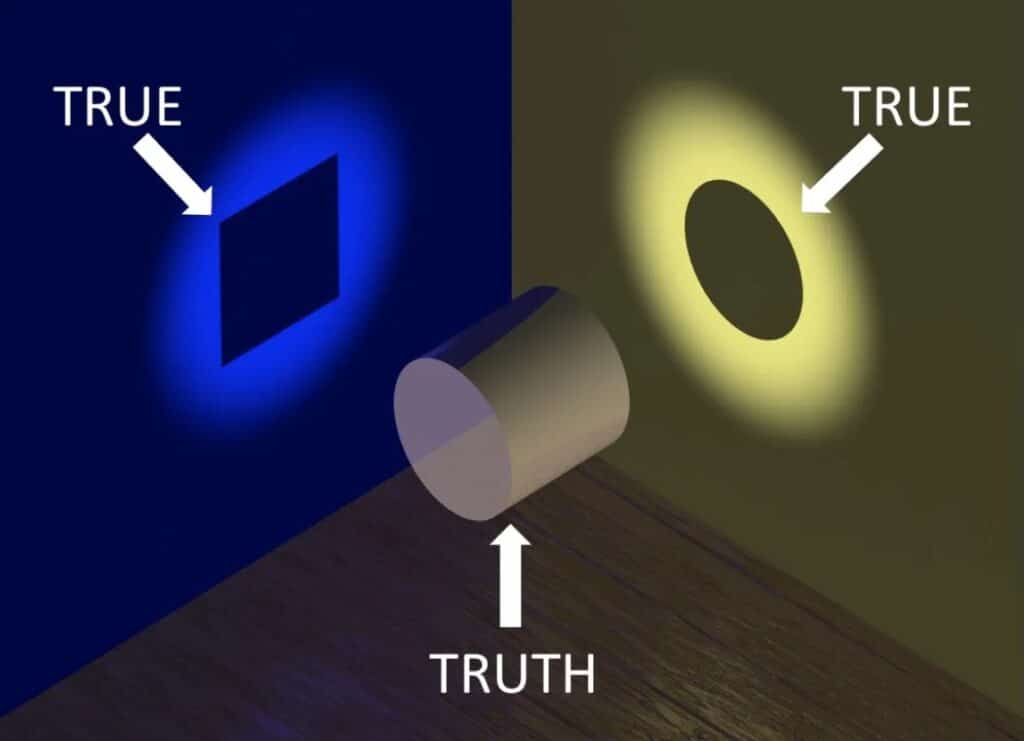
I love what you’re saying, and now you’ve interested me in reading parts of the Bible based on what you said. There are some nuggets in there that I know there are. Thank you for that.
By the way, there’s a great example of kind of like a plant medicine journey, but it wasn’t with plant medicine. It was Isaiah 6, verse 8. He has a vision where he is at the feet of God, and he’s basically interrupting a board meeting where he’s doling out assignments to the archangels like different miracles to perform. There’s a little Isaiah showing up in his astral body, like, “Hey, here I am. Please send me, send me. I want to go. I want to be sent on a mission.” There are so many secrets and higher-level ways of understanding the Bible.
When partners fail to accept each other's differences, they end up otherizing each other, labeling their spouse as a narcissist, borderline, or codependent instead of reaching over the aisle and stepping into their shoes. Share on XThere’s so much coding in there that if you just take some of these little nuggets and apply them in your life, as I do with that little nugget, it is life-changing all on its own. I made it part of my morning routine that every morning, I would imagine myself at the feet of God, like Isaiah, and I would ask God to please send me. I envision that I’m being somehow in the upper world. I assigned these assignments to deliver God’s miracles. The most astounding things show up for me. I’m at the right place at the right time, saying the things that. How could I possibly know how to say that thing or recommend this particular resource or tool? I don’t know. It’s incredible. We are all connected. We are all one. You mentioned your Jewish roots, like The Shema. We are all one. Like, there’s nothing independent of God. That means we are God. We’re part of God. We’re like little cells of God, of this oneness. When you recognize that, and it’s in your consciousness more than it’s not, you can’t be mean to others because that’s being mean to yourself.
With you there, Stephan. An unfair question, perhaps, but it came to mind. If you could lead this country and pull everyone together, it would defrag the country from its almost civil war-ish state. What would you do? How would you bring all these people together who were once, we could argue, never fully together because there’s always been unfairness and injustice in our institution? But better. It was better, right? In the fifties and the sixties, marginalized groups were still unhappy and not being treated well. But there wasn’t the divisiveness as there is today. How would you bring people together?
One of the things I find chronic in families and even in partners is the human tendency to always look for where we are different and where we disagree.
I would help people see and glimpse the larger reality. Everyone has their own path, but I invite them to establish a dialogue with their higher power in a way that provides, without a doubt, signs of a larger reality or of the illusion of reality that we’re experiencing now. A scene in The Matrix movie has a glitch in the matrix. That cat just walked across the floor twice. I believe we’ve all had experiences where this does not feel real, this feels beyond I’m in a video game or that something is not what it seems, that surface-level reality is not so real, or that reality could be malleable or bent. There’s another scene in The Matrix where the boy in the apartment of the oracle is bending spoons with his mind. Neo bends down and asks him what his secret is. And he says, “The secret is there is no spoon.” So my solution that comes to mind right now when you’re asking me this is I would help people to see there is no spoon. Is it through books, TED talks, YouTube channels or some combination of all the above or some other modality that hasn’t shown up to me yet but is in the works in the upper world? I don’t know. But that’s my vision for this world. I also read this as part of my morning ritual. Is my vision a world where everyone cleaves to the creator?
It’s a very difficult question because the area of leadership in the masses contains all different kinds of minds and experiences and histories and realities. It would be hard to get everybody on board with an idea to find where we are the same and where we agree because that’s basically how we’ve done it in the past. Where are we the same, and where do we agree? Does this inspire and motivate us enough to work towards a vision of something and not fight each other? There have been lots of examples of this. Finding an enemy to focus on has been one example. That brings people together. Other, we’re the same, the enemy is different, or we’re going to go to the moon, we’re going to compete, we’re the same, we’re going to get on the moon, Americans, and we’re all going to be proud of it. The Russians are different. We’re competing with them.
People who are good-doers and bad actors know how to manipulate us because we’re incredibly intelligent animals, and we’re equally stupid.
There have been other ideas that would get people on board—land of the free. Where you can do anything you want, all men are created equal, which we know is bullshit. It’s a great idea but hasn’t been fully implemented. But certainly something that would get people to go, “Ah, I want to join, I want to do that.” And that seems to be missing. And that is one of the things that I find that is chronic in families and even in partners. The human tendency is always to look where we are different and where we disagree. Because it’s low-hanging fruit, it’s the first thing we notice. People with higher, perhaps higher, social-emotional intelligence, or those with the capacity to create consensus, know better. They know how to bring people together by finding where they are the same. You all wear black hats; therefore, it doesn’t matter what color you are. “That’s right, yeah. I like you.” And all it took was a friggin hat.
Yeah. That reminds me of the book by Dr. Robert Cialdini, Influence. One of the principles is unity. “Hey, I see that you also went to the University of Michigan,” and then the sales pitch, and like, “Oh, I’ll actually listen to your sales pitch. Go blue.”
People who are good-doers and bad actors know how to manipulate this again because we’re incredibly intelligent animals, arguably the most on the planet, and we’re equally stupid. We can be tricked. Our own minds can trick us. Somebody can social engineer us and get information from us if they know how to make us feel relaxed and trusting. “I went to school. Who was your instructor? Well, he was great. Hey, you wanted me to buy you a drink. By the way, where do you live? I can get all sorts of information from you. I’m going to guess you’re social—just the last four. See how good I am?”
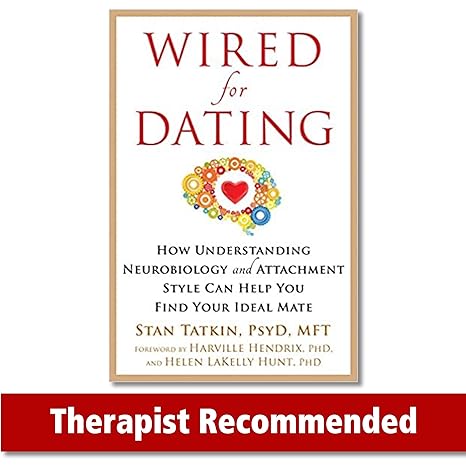
My point is, first of all, I believe the existentialists were right. We have been in a panic since we were born because we don’t have a purpose. We don’t have a meaning. There is no meaning except the ones we make up. We’re going to die. That’s pleasant. We don’t know when we are alone. But wait, there are other people here. Yay. But then you start to talk to people, and you realize we’re not on the same page. I thought you were, but you’re not exactly on the same page. Then we realize nobody is because being on the same page is impossible—two different brains, histories, and nervous systems. We only approximate each other’s minds. So then we go back to this idea, “Sh*t, I’m alone. Is there anybody?” Many times, I think people’s idea of soul mate is somebody who will finally get me right. I’ll get them because they’re so much like me and need to feel that I’m not alone, that my world makes sense to me, and that I can contain it by categories, boxes, careers, religion, or whatever. It’s a necessary thing, right? Otherwise, we become way too anxious, and life is constantly scary.
But, the biggest illusion, the biggest lie we’ve all bought into, is that we are alone. We don’t even have true T, which is a true reality. There is no private thought. You’re not ever alone with your thoughts. You’re broadcasting those thoughts into the upper world. And there are. There’s a large audience hearing everything. This might be terrifying for some listeners to think about. If that’s true, what about all the dirty, nasty stuff I’ve been thinking about when I’ve been alone with my thoughts?
On my level, because of where I think and where my passion is, what I’m constantly trying to figure out is the same thing you are. “How can people get along? What is the most important thing in life?” I come to think it’s relationships. “How do we deal with the idea that there are certain itches we may not be able to scratch?” And that may lead to an awareness of aloneness, such that you didn’t get my joke or didn’t enjoy the same dark movie I appreciated. “I don’t get it. I thought that was just an awful, horrible movie. And I could feel alone.” “Really, you couldn’t see that? You couldn’t see so esoteric and funny.” “What was funny?” “Nothing funny.”
Our idea of truth agrees on certain levels with other people’s realities, and then it doesn’t.
I’m talking about that kind of thing. But also, as you mentioned in the reading of thoughts, we are affecting everyone around us at every moment, and our mood, our state of mind, we may think it’s an inner thought, but my inner thought turns into a facial expression, which then you see and then you react to, and then I see your reaction, and I think you’re just nasty, but you’re just reacting to my nasty face because I was thinking nasty thoughts. I don’t know which is which. I can’t see my face, I can’t hear my voice, and I can’t watch my posture to see whether I’m looking like you should walk across the street when you see me.
There is this thing about us. We’ve never lived outside of our heads. We never will. Our idea of truth, our idea of reality, agrees on certain levels with other people’s realities, and then it doesn’t. You just yelled at me and said, “I did not. I said it like this. You think you said it like that, but you didn’t say it like that.” You just said a dangerous word to me. “Well, can I talk? Can I say things? Yeah, but you should know me.” That word is a buzz, is a trigger for me, and you keep doing it.
So there are certain sort of built in human problems that all muck up our ideas about unity and bringing people together. There are many conundrums in the ideas you’re talking about. So I deal with it by studying couples, by studying their behavior, by watching them as if I’m watching them in their animals, in their natural habitat, by video recording, and then doing digital frame analysis, watching their faces, seeing fights start way before anyone knew they were starting a fight. They misunderstand each other, talk about two things, scare the other person, not with words but their face, and do not know it. So these things fascinate me, and I think many times, if I can get to the bottom of this by studying it and getting very granular, maybe I can start to understand some of the bigger questions as well, including my existence, my happiness, and by studying couples, which I love.

I had Dr. John Gottman and his wife Julie on this podcast, and it was an amazing episode. We touched on all their studies on microexpressions and how.
He did talk about microexpressions. I’m surprised. I know John. I didn’t know he started doing that.
He can tell with 95% accuracy whether a couple will divorce based on viewing the videotape. Just a few minutes of that, looking for microexpressions, “Is a microexpression of contempt there in one of the partners?” If that’s present, then it is pretty much game over with the marriage.
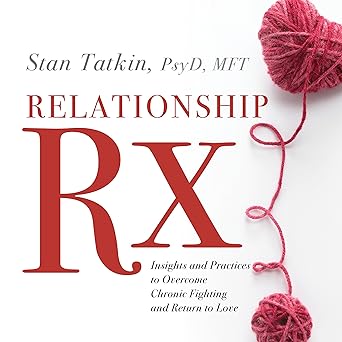
It’s interesting. There’s where we disagree. He’s a friend, and I forgot because he’s really good friends with Paul Ekman, who came up with the facial action coding system. So, I, too, teach looking and training for micro expressions and micro-movements. Disgust is what Paul thinks.
Yeah, disgust, I think, was the one. Not contempt.
For John, it’s been contempt. Unless he’s changed, it’s been contempt. His contempt is corrosive to the autoimmune system. It’s a kind of look, constantly, like you’re an idiot—devaluing. It’s your teenager going, what a joke, right? Be around that a lot, and you just want to pummel someone. But disgust this and not in this form. I’m just holding it in a very.
I once had a gal who would sniff whenever she talked about her husband. I took note of that and slowed down the video very slowly, and it turned out to be a micro expression of disgust. It wasn’t just a sniff. I found that disgust is a marker. And in my couples, whenever I catch it as a micro expression, they’re not going to—probably not going to continue. I also found another marker.
But what’s the other marker?
I did a small research. Does this couple have a song? A song that they fell in love? That marks the time they fell in love. It could be the song they danced to at the wedding that they chose. It could be any number of songs.
People can hate each other for a long time, but when they hear the song they fell in love with, they go right back to that time; it’s embedded and diffused in the brain.
Being a musician, I have a lot of songs. I have the song that I fell in love with my wife. It’s a personal song. And then we have two songs that mean a lot to us. In terms of neuroscience, Tracy and I wanted to see that our songs would stay continuous and permanent as an immediate state shifter if we were both to hear it without a prior announcement.
So, I would find out their song and then play it without them knowing I would do it. I would start to track their reactions and every beat, watch everything, and view it over and over again. It was a really lovely experiment. My hypothesis was correct: people can hate each other for long. But when they hear the song they fell in love with, they go right back to that time. It’s embedded, it’s diffused in the brain, and it’s also embedded quite deeply. So it shouldn’t change, but it does. And if it does change and they do not react, or one of them goes, it doesn’t work for me anymore. They’re going to divorce soon. That has been the case every time. That is quite stunning.
Wow. That is fascinating.
Yeah, because it has to take quite a bit of water under that bridge for that song to play. Like a worm to turn. Of course, not everybody has a song, so you can’t test everybody.
Wow. I know we have to wrap because you have to go. This has not been what I was expecting to talk about, but thank you so much for entertaining my whims here of going in different directions besides the typical. But if our listener wants to get some couples therapy through you or at least learn from you, your books, your TEDx talk, your YouTube videos, and whatever else, where is the best place for them to go?
Simply go to thepactinstitute.com. This started off with my training. Mental health professionals are still around the world, so we train therapists. We also do couples workshops throughout the year online. We’re doing a five-star couples retreat in Portugal next year. You can find that on the website, too. Those are wonderful, and I encourage you to come. Workshops are really good and cost-effective. And then, of course, you can get a hold of me.
I encourage my listeners to check that out and, of course, to read your books and watch that TEDx talk. Thank you, Stan. It has been a pleasure to get to know you and talk deeply with you. So thank you.
Thank you, Stephan. It was a pleasure.
And thank you, listener. We’ll catch you on the next episode. In the meantime, have a fantastic week. I’m your host, Stephan Spencer, signing off.
Important Links
Connect with Dr. Stan Tatkin
Book
Film
People
Previous Get Yourself Optimized Episodes

